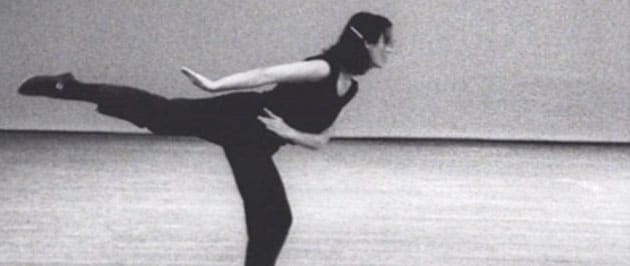Manifestos often pop up in the arts as a means to draw a line in the sand. They intend to end one expression and launch another.
That makes sense because the writer of the new manifesto wants to share their vision of what’s possible. And that is only achievable if you ditch the old way of doing things.
In dance, traditional dances like ballet use body movements to tell a story. But in the 1960s, the rise of experimental dance wanted to end this. Yvonne Rainer leads the way with her manifesto. She pioneered a push to reduce dance to its essential elements. She wanted to strip away the unwanted drama and expression that had been the norm. In its place, she favoured presenting the body as the core dance object.
In 1965, Yvonne Rainer published her ‘No Manifesto’:
No to spectacle.
No to virtuosity.
No to transformations and magic and make-believe.
No to the glamour and transcendency of the star image.
No to the heroic.
No to the anti-heroic.
No to trash imagery.
No to involvement of performer or spectator.
No to style.
No to camp.
No to seduction of spectator by the wiles of the performer.
No to eccentricity.
No to moving or being moved.
The two most powerful ways to write a Manifesto
Yvonne Rainer’s No Manifesto is the classic example of one of the two most powerful ways to write a manifesto. Watch the video below to find out more or read this blog post.
Sources
The Manifesto: http://wiki.answers.com/Q/What_was_Yvonne_Rainer%27s_NO_Manifesto
Yvonne Rainer: http://en.wikipedia.org/wiki/Yvonne_Rainer
Thanks to Helen Omand for sharing this manifesto.
Geoff’s Comment
If a manifesto is to provoke change it needs to change something. This often means the end of something and the beginning of something else. Yvonne Rainer’s No Manifesto is very clear on what is going to stop doing.
Questions to Write Your Manifesto
- What are you saying ‘no’ to?
- What are you going to stop doing?
- And what is this the end of?



